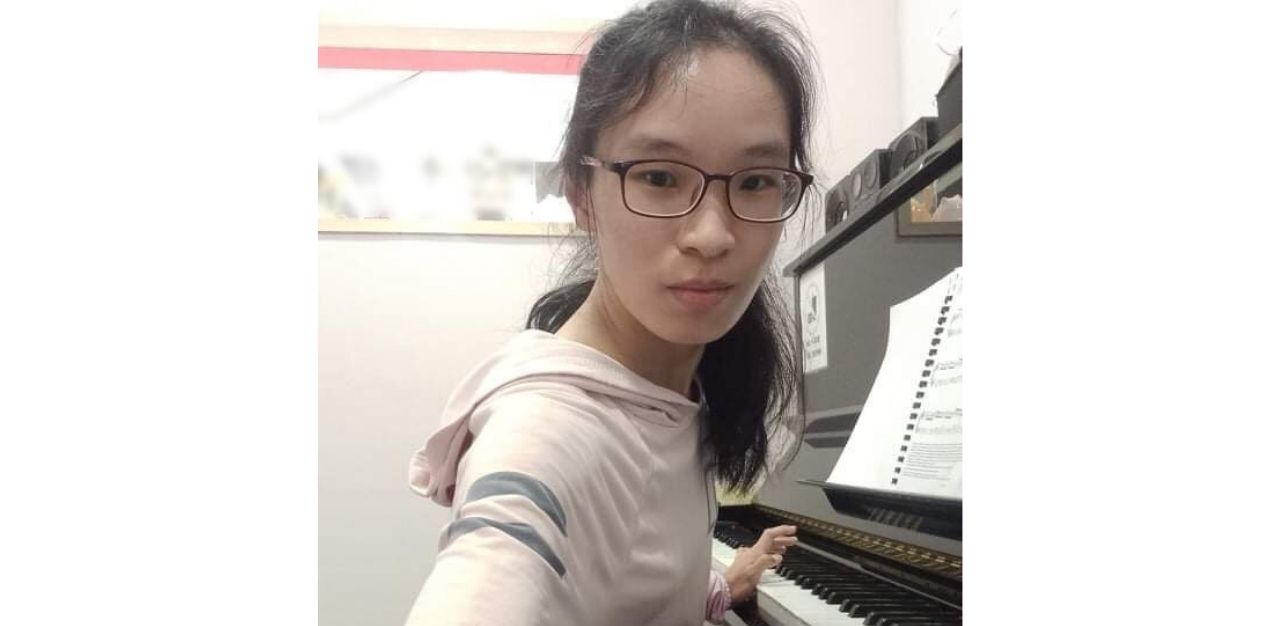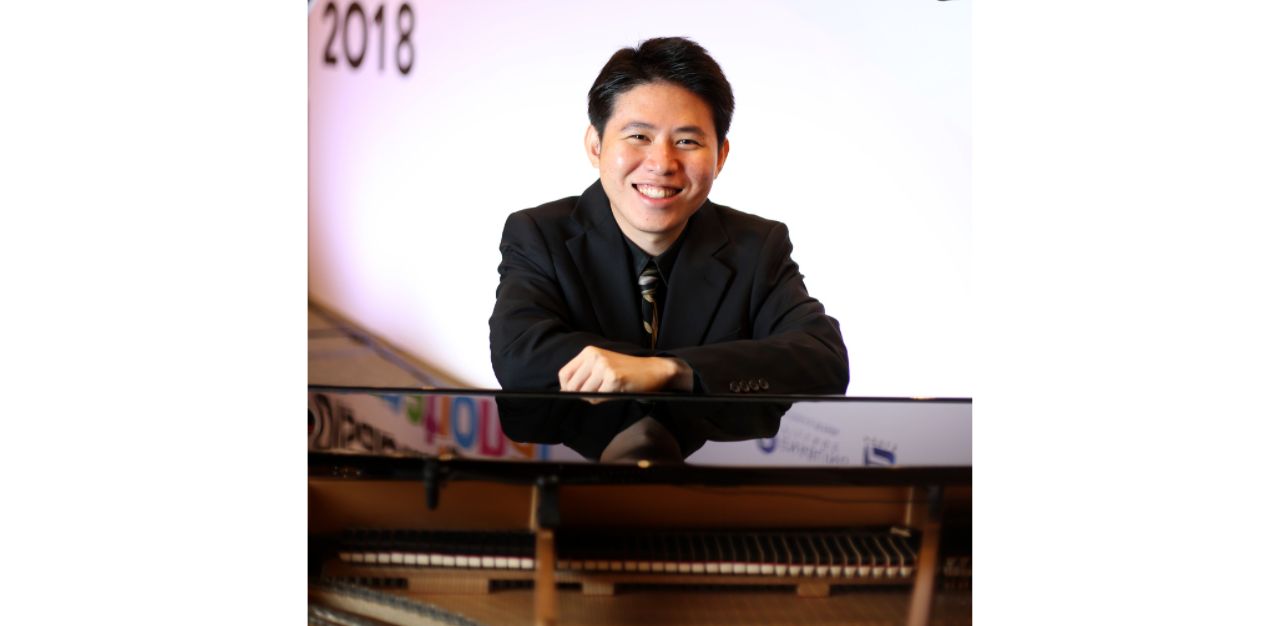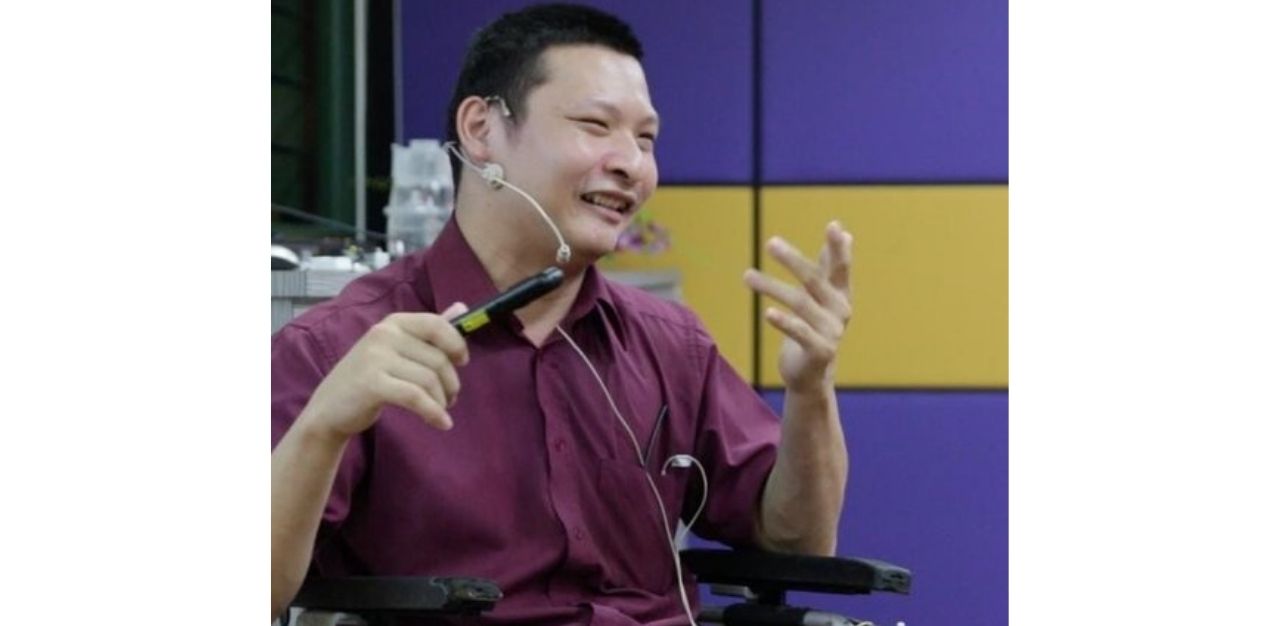Just as a fashion model represents an inspirational ideal, a role model is someone who inspires others to imitate his or her good behaviour, character and accomplishments. There are even those who overcome extreme odds to achieve their dreams. As the people in the United States celebrate National Inspirational Role Models in November, it is also a good excuse to celebrate role models who embody the qualities and characters for lifelong success in Singapore.
Sarah Leong – Not a deaf violinist, just a violinist who happens to be deaf

Ms Sarah Leong, who is 29 this year, started playing the piano when she was three. Sarah was born with hearing loss and she says because she had never experienced hearing, she never felt a sense of loss.
“You can’t really miss what you never had. I don’t feel particularly deficient in any way,” she adds.
With a father who is a professional musician, learning to play a musical instrument was something she was expected to do as a child and having to practice two, three or even four hours a day was nothing out of the ordinary for her.
“My dad is my biggest role model, but he maintained from the start that I am my own person and that I am neither a worse nor a better version of him because I am the only me that there is, and that’s awesome,” says the violinist, who also teaches piano and violin.
“I learned to read notes early. I honestly don’t remember the initial learning at all. It was as much a part of daily life as making the bed or brushing [my] teeth – albeit infinitely more enjoyable,” she adds.
Ms Leong draws her inspiration and fortitude from her own violin teachers — Professor Alexander Souptel, the former concertmaster of the Singapore Symphony Orchestra, and Masako Suzuki White, a professional Japanese violinist. They would never let her get away with anything short of good work, but also made it clear that she is human and playing the violin is just an expression of the human condition. One thing she has learnt from her teachers is that people thrive when they are treasured.
“You’d be surprised at how much you can achieve when you feel comforted, loved, and supported despite all your technical faults,” she says.
But Ms Leong insists that she is not a deaf violinist. Instead, she is just “a violinist who happens to be deaf”.
“It’s not exactly something I think too much about, no more than you would keep yourself up at night thinking about the colour of your eyes or hair,” she says.
“I won’t lie that making music is frustrating at times, but every single musician has his or own moments of self-doubt and anxiety. Music was never meant to be a bed of roses, and admitting to being human and flawed is enormously empowering because it’s the first step towards taking ownership of your problems,” she adds.
Ms Leong says that most people do not realise that she is deaf whenever she plays the violin. To her, disability does not mean inability. It just means adaptability.
Ms Leong says often, people with disabilities are more disabled by society than by the condition. When people do things for them because they are too slow or because they look awkward doing them, these people are often taking away that ability from those with disabilities.
“I have seen kids who literally never learned to use their hands because someone did everything for them. I know of someone who does nothing except yell for attention because everyone tells him what to do. Even though he knows how to do things for himself, he is completely dependent on having someone run around for him like he is a drill sergeant,” she says.
The best advice from Ms Leong then, is to “just do it”.
“Just go out there and try and try again. You can’t – until you can. The same could be said for anyone who isn’t deaf. Which beginner cellist doesn’t sound like they’re killing cats at the start?” she asks.
“I always say seven times down, eighth time up – there is no failure, except when you are no longer trying.”
Azariah Tan – a doctorate in piano performance despite hearing loss

Dr Azariah Tan at the Arts & Disability International Conference and True Colours Festival 2018. (Photo courtesy of Dr Azariah Tan)
Dr Azariah Tan, 30, may only have 10 per cent of his hearing left but it did not stop him from pursuing his passion in music. He has congenital bilateral sensorineural hearing loss (SNHL), which means he suffers a hearing loss of about 90 per cent in both ears.
The root cause of SNHL lies in the auditory nerve, the inner ear, or central processing centres of the brain. Dr Tan was diagnosed at age four and lost between 5 and 10 per cent of his hearing every year, leaving him with only 10 per cent now.
Dr Tan’s parents had introduced him to the keyboard when he was very young. They brought him to concerts and made him listen to music recordings and radios. They also trained him to be disciplined by making him practice playing the piano every day.
“When I was teenager I started to enjoy music more. It was also when I was home-schooled and had more time to enjoy music. I loved listening to various classical recordings and reading books about famous classical composers and great pianists,” he says.
However, the journey in music has not always been smooth sailing. It has its ups and downs, Dr Tan says. While there were many favourite pieces he enjoyed listening to and playing his heart out, there were also obstacles – mainly related to his hearing challenges and his disappointments from practicing.
Although he is able to hear better with the help of hearing aids, the focus of these hearing aids has always been on speech, and not music, so he could not hear his own playing well. As a result, his hearing condition affects his perception of certain aspects of music.
For example, it makes it difficult for him to play by ear because he is not able to clearly distinguish one instrument from another, or when there are too many sounds going on at the same time. There are many other examples, such as pedalling, dynamics, timbre that he could not perceive well.
Yet, that has not stopped Dr Tan from pursuing music and obtaining a Doctorate in Piano Performance from the University of Michigan with Logan Skelton.
“Some specific skill sets of musicians are much more challenging for me. So I try to find creative ways around them. If I am not able to solve them at the moment, I focus on my strengths, on what I am able to do,” he says.
“For example, playing with other musicians takes a lot more effort than what would normally be required. It also involves creative approaches, which may be unfamiliar to those I work with. As a result, clear communication is so important in overcoming these challenges,” he adds.
Despite the challenges, Dr Tan remains steadfast in his reason to pursue music. He says it is “a wonderful artistic expression and way of communicating with others, as well as self-therapy”. He also cites his resilience and love for music as factors that kept him going.
“Know your ‘why’. For me, music brings much joy. It is something which contributes to good well-being, enjoyment, and also enables me to give to others. And, there is nothing like the feeling of working hard on something with my head, hands and heart – and to see it come to fruition and bring joy to others,” he says.
Another huge factor that supported him in his journey to obtaining his Doctorate in Piano Performance is the encouragement and support of his supervisor, Professor Skelton, who was so kind, and adaptable in teaching him.
“I would not be here if not for the encouraging piano critics, mentors and teachers, who had been so encouraging and supportive. Although my learning process was not perfect, the kind, unwavering support of these people have contributed hugely to where I am today,” he says.
To aspiring musicians with disabilities, Dr Tan says they need to “know [their] why” – to train their thinking and focus on what they can do instead of what they cannot.
Sim Kang Wei – from supported to supporter; a career in social service

Mr Sim Kang Wei is a trained counsellor and a passionate advocate for people with disabilities (PWDs). He is also an experienced trainer with more than 10 years in public speaking and specialising in personal and group motivation, burnout prevention and self-care, and diversity and inclusion. His purpose and passion partially stem from his experiences living with cerebral palsy, a group of disorders that affect a person’s ability to move and maintain balance and posture.
As a child, Mr Sim became aware that he was different when he realised that he wasn’t able to sit up straight or talk like other children. He was not hitting the typical milestones a child is expected to, his parents told him. Speech was an obvious obstacle because he had trouble communicating, and it was frustrating as he did not know how to make sense of that. When he did not want something, he would cry.
Growing up, people called him names, and in secondary school, he was bullied for his condition, even physically, that he actually feared going to school. It took a toll on him. At the same time, his experiences drove him to pursue a career in social service.
“I didn’t want any other person to really go through similar experiences [as I’ve had],” Mr Sim says, adding that he wants to make long-term, sustainable changes to the social service sector, in how they are providing support to people with disabilities.
“Being part of the system gives me a practical reality check. It helps me to understand the challenges faced, so whatever I propose is with the knowledge that I know the sector and the struggles too well,” he says.
“Since I was supported by various voluntary welfare organisations from a young age, I can also provide dual-perspectives to make better changes in the sector and to my community as well,” Mr Sim adds.
Yet, there are times when he feels disillusioned, which is normal, he says, because people in the social service sector are not angels – they are also human. “It is crucial to take the time to care for oneself, especially for people in this line of work”. Mr Sim says that it is especially important for him to take occasional “resets” – to go back to the fundamentals of why he is doing certain things.
What keeps him going in the social service arena is seeing his clients believing in themselves, he says.
Mr Sim also says that it has not been easy for him in the job market. He says he faces specific barriers for inclusive employment. Some employers do not share similar opinions about inclusive employment as he does, and that creates a barrier to entry for him and people like him.
Thankfully, he knows his own value – which is something that grounds him and gives purpose to his actions. He believes that it is especially important for people with disabilities who may struggle with things like self-esteem to know their own value.
Mr Sim says society’s overly-positive messaging actually places additional expectations on them. He wants people with disabilities to know that it is okay to fall short of these expectations, as long as they are willing to get back up. Having such a mindset is more helpful in enabling them to move forward, and he advises them to always be grounded in their own purpose.
Join the conversations on TheHomeGround Asia’s Facebook and Instagram, and get the latest updates via Telegram.














